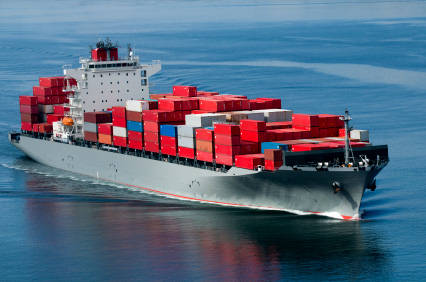For sometime now, Nigeria has been having negative balance of trade. Balance of trade is the difference in value between a country’s import and export over a period. If a country exports a greater value than it imports, it has positive balance, and conversely, if a country imports a greater value than it exports, it has a negative balance or trade deficit.
For many years now, the federal government has been battling with this trade deficit, which prompted it to marshal out some policies to check the ugly trend. For instance, some time ago, the government decided to stop foreign exchange supply for the importation of some items which can be produced domestically. According to the government, as long as the country continues to import these items, the local producers would suffer.
Many analysts said it was an inevitable measure by the government, given the global commodity crisis, which affected Nigeria’s oil income, the biggest source of public revenue. Therefore, failing to curtail demand for foreign exchange would have led to a run on the reserves and this could eventually put Nigeria in a clumsy situation in international trade.
It must be noted that for decades, Nigeria had been importing many products, even chewing gum, which it could produce domestically. And as long as the CBN was making forex available to the importers, they would continue to import all manner of things. Statistics show that Nigeria’s import bill rose by over five hundred per cent in ten years because of this unfettered access to foreign exchange. This had negative impact on Nigeria’s balance of trade and placed enormous pressure on forex demand. Not only was local industry stunted, the country’s foreign reserves were not growing.
The sharp drop in oil prices since 2015 exposed Nigeria’s vulnerability to these external shocks. It is a good thing that Nigerians have now taken up the issue on the need to buy locally produced goods in place of foreign products. On the print, electronic and social media, the campaign to patronize made-in-Nigeria products have been trending. Nigerians are saying: let’s not buy imported corn flakes when there is one made in Jos; Why not patronize locally assembled cars? Why not reduce dependency on foreign shoes and wines? This campaign has opened the eyes of millions of Nigerians to the fact that Nigerians are hurting the Naira every time they choose foreign instead of local products. This pressure on the dollar to import products cannot go on forever.
The federal government should further introduce tariffs that will protect locally manufactured goods. Considering the expected fuss about free trade and international rules, it must be noted that there is nothing in the World Trade Organisation (WTO) rules that prescribes compulsory suicide for countries. Above all, different countries adopt many WTO rules to suit them so that their industries are not sent out of business.
More so, it is very important that security be tightened at the country’s borders so that what Nigeria is gaining through differential tariffs and forex restrictions, it will not lose through smuggling. No matter how well-meaning the government is, as long as the agencies of government do not do their own part of the job and live up to expectations, Nigeria will be back to square one.
It is commendable that beyond the forex restrictions, the federal government is also offering loans to manufacturers and other members of the real sector at a single digit. This stimulus is expected to allow the real sector access to cheaper finance so that the businesses can expand. If it works out well, it will stimulate output growth, enhance value addition and engender economic productivity. This will be favourable to the economy, if credit goes to sectors that have sufficient employment capabilities and high growth potentials.
Nigerians should change their appetite for foreign goods. Although, the forex restriction has made some of those imports very expensive and uncompetitive compared to Nigerian products, Nigerians must think of ways to make this sustainable. Nigerians need to re-examine their tastes, lifestyles and priorities as their own contributions to national development. It does not make any sense for them to be consuming foreign products at the expense of made in Nigeria. We need a new orientation altogether.
It must be admitted though that many people think Nigerian products are substandard and do not compare with imported products. There is no argument to be made against this fact. However, simple economics connotes that if Nigerian products begin to enjoy good patronage, the companies will have to start competing for the consumers’ loyalty. At this stage, they will seek to improve the quality of their products in order to become the market leader or the dominant product.
This will lead to healthy competition, and the smartest producers will go for international standards so that their products can be export quality. But without demand, they cannot recoup their investment; much less improve the quality of their products.









Comments are closed for this post.